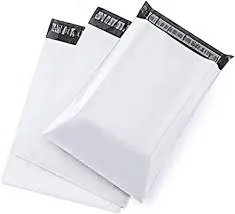Durable and Eco-Friendly Mailing Bags for Safe and Stylish Shipping Solutions
The Evolution and Importance of Medium Mailing Bags
In the age of e-commerce and fast shipping, packaging has taken on a new significance. One of the essential components of this packaging revolution is the medium mailing bag. These bags, which combine durability with versatility, have become a must-have for online retailers and individuals alike. In this article, we delve into the evolution, features, and importance of medium mailing bags in today’s marketplace.
A Brief History
The concept of mailing bags is not new. Originally, packages were wrapped in paper, tied with string, or placed in traditional boxes. However, as e-commerce exploded in the late 20th and early 21st centuries, the need for more efficient, cost-effective, and lightweight packaging solutions became apparent. Medium mailing bags emerged as a practical alternative, often made from resources like polyethylene or recycled materials, which offered a balance of strength and flexibility.
Features of Medium Mailing Bags
Medium mailing bags typically range in size from around 10 to 15 inches in width and are designed to comfortably accommodate various products, from clothing to delicate items like books or electronics. Several features make these bags particularly appealing
1. Durability Most medium mailing bags are tear-resistant and waterproof, ensuring that the contents stay safe during transit, regardless of the weather conditions.
2. Lightweight Unlike traditional boxes, mailing bags are significantly lighter, which can lead to cost savings on shipping fees—an important factor for businesses seeking to maximize profit margins.
3. Flexibility These bags can easily fit into various shapes, allowing for more efficient use of space during packing. This flexibility also contributes to reduced shipping costs, as more items can be packed into a single shipment.
medium mailing bags

4. Security Many medium mailing bags come with strong adhesive flaps, ensuring that they remain securely closed until they reach their destination. Some even feature tamper-proof designs that make it evident if a bag has been opened during transit.
5. Eco-friendliness With the increasing focus on sustainability, many manufacturers are now creating medium mailing bags from recycled materials, or designing bags that can be recycled after use. This conscious approach resonates with consumers who are more environmentally aware.
The Role of Medium Mailing Bags in E-commerce
In the booming world of e-commerce, the role of medium mailing bags cannot be overstated. They provide an effective means of delivering products that maintain the items' integrity while also appealing to environmentally-conscious consumers. E-commerce giants and small businesses alike have adopted these bags due to their practicality.
A key benefit is that they allow businesses to streamline their packaging process. By reducing the packaging size using medium mailing bags, businesses can optimize their logistics, resulting in quicker dispatch times. Additionally, mailing bags can enhance branding opportunities. Many companies customize their bags with logos and colors, making them a vehicle for brand recognition even before the package is opened.
Consumer Convenience
From a consumer perspective, medium mailing bags offer convenience. They are easy to open and handle, which enhances the unboxing experience. For returns, many bags are designed to be reused, allowing customers to send items back without the need for additional packaging—another factor that bolsters customer satisfaction and loyalty.
Conclusion
As e-commerce continues to grow, the importance of medium mailing bags in logistics, marketing, and customer satisfaction becomes increasingly clear. They symbolize a shift toward practical and sustainable packaging solutions that benefit both businesses and consumers. Whether you are a small business owner or a frequent online shopper, understanding the value of medium mailing bags can enhance your e-commerce experience. Ultimately, these bags are more than just a means of shipment; they represent efficiency, sustainability, and innovation in modern commerce.
-
The Best Uses for Small Trash Bags in Daily LifeNewsJul.01,2025
-
Stylish Reusable Grocery Bags TrendsNewsJul.01,2025
-
Shipping Advantages of Using Bubble Envelopes BulkNewsJul.01,2025
-
How Compostable Mailing Bags Reduce Environmental ImpactNewsJul.01,2025
-
Environmentally - Friendly Bulk Poly MailersNewsJul.01,2025
-
Eco Friendly Custom Laminated Tote BagsNewsJul.01,2025
-
Have the freedom of customizing your custom mailers any way you want! Our dedicated packaging support will help deliver you the mailing experience you need to elevate your shipping experience to the next level! Start making a strong impression on your customers and stand out from your competitors! -
LIYA uses high quality raw materials which directly purchased from large enterprises domestic and overseas such as PetroChina, Sinopec, Sabic, Equate, ExxonMobil, Dow Chemical, Total, and Borouge, ensuring the price advantage and quality of the raw materials. -
LIYA uses high quality raw materials which directly purchased from large enterprises domestic and overseas such as PetroChina, Sinopec, Sabic, Equate, ExxonMobil, Dow Chemical, Total, and Borouge, ensuring the price advantage and quality of the raw materials.





